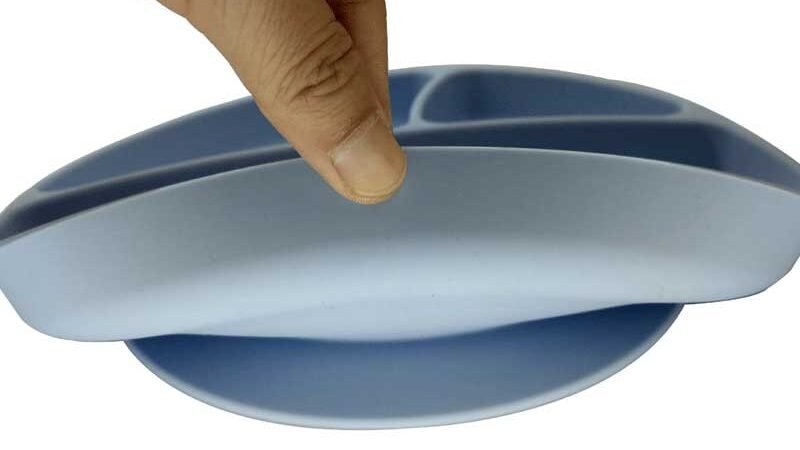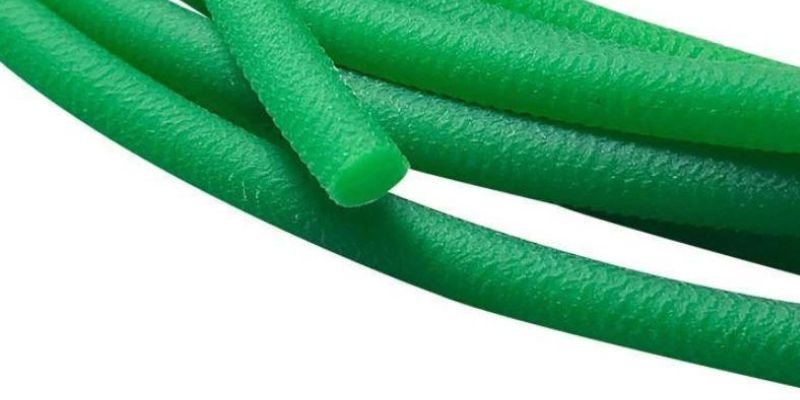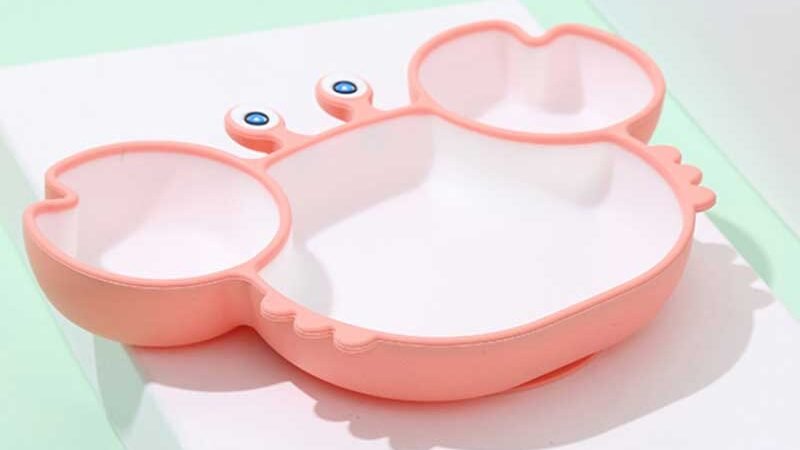Introduction
When faced with the task of selecting the appropriate material for a project, one is confronted with a plethora of options, each with its own advantages and drawbacks. Among the most widely utilized substances in a broad spectrum of applications are Silicone and Polyurethane.
Silicone and Polyurethane(PU) are elastomers, a category of materials that exhibit rubber-like characteristics and can be extended and deformed without fracturing. Both materials demonstrate exceptional resistance to extreme temperatures, chemicals, and weather, rendering them well-suited for a vast array of applications.
This article delves into the distinctions between Silicone and Polyurethane, including their uses, strengths, and weaknesses, providing you with the information necessary to make an informed decision on which material is best suited for your project.

What is Silicone?
Silicone is a synthetic polymer made up of silicon, oxygen, carbon, and hydrogen. It is a flexible and durable material that can be easily molded into different shapes and sizes. Silicone has a wide range of properties that make it suitable for various applications.
Properties of Silicone:
- High thermal stability
- Excellent chemical resistance
- Non-toxic and hypoallergenic
- Good electrical insulation
- Low compression set
- Good tear strength
- Water repellent
Applications of Silicone:
- Medical implants and devices
- Electronic components
- Automotive and aerospace industries
- Construction and architecture
- Household and kitchenware

What is Polyurethane?
Polyurethane is a polymer made up of organic units connected by urethane links. It is a versatile material that can be formulated to have different properties such as hardness, flexibility, and elasticity. Polyurethane has a wide range of applications due to its unique properties.
Properties of Polyurethane:
- High abrasion resistance
- Excellent chemical resistance
- Good impact resistance
- Good thermal insulation
- Good electrical insulation
- Good hydrolytic stability
- Low compression set
Applications of Polyurethane:
- Furniture and bedding
- Automotive and aerospace industries
- Building insulation
- Industrial coatings and adhesives
- Athletic and safety equipment

Differences Between Silicone and Polyurethane:
Chemical Resistance:
One of the major differences between Silicone and Polyurethane is their chemical resistance. Silicone has excellent resistance to a wide range of chemicals, including acids, bases, solvents, and oils. It is also resistant to UV radiation and oxidation. Polyurethane, on the other hand, has good chemical resistance, but it is not as resistant to some chemicals as Silicone. It is particularly vulnerable to some acids, solvents, and bases.
Temperature Resistance:
Temperature resistance is another factor that differentiates Silicone and Polyurethane. Silicone has a high-temperature resistance and can withstand temperatures ranging from -60°C to 200°C. This makes it suitable for use in high-temperature environments, such as automotive engines and electronic components. Polyurethane also has good temperature resistance, but it is not as resistant to high temperatures as Silicone. It can typically withstand temperatures up to 100°C.
Tensile Strength:
Tensile strength is the maximum amount of force that a material can withstand before breaking under tension. Polyurethane has a higher tensile strength than Silicone, making it more suitable for applications that require high strength and durability. This makes Polyurethane a popular choice for applications such as seals, gaskets, and wheels.
Hardness:
The hardness of a material refers to its resistance to indentation or scratching. Polyurethane can be formulated to have a wide range of hardness levels, from soft to very hard. This versatility makes it suitable for a variety of applications, including flexible foam and rigid plastics. Silicone, on the other hand, has a more limited range of hardness options, and is generally softer than Polyurethane.
Flexibility:
Silicone is a very flexible material that can withstand a lot of stretching and compression. It is often used in applications that require a material to be able to bend or flex, such as in seals and gaskets. Polyurethane is also flexible, but not as much as Silicone. It is more commonly used in applications that require a more rigid or solid material, such as in wheels and rollers.
Curing Time:
Silicone has a longer curing time than Polyurethane. This means that it takes longer for Silicone to fully harden and cure than it does for Polyurethane. This can be a disadvantage in some applications where fast curing times are necessary.
Cost:
Polyurethane is generally less expensive than Silicone. This is because Polyurethane can be produced more easily and in larger quantities than Silicone. In addition, Polyurethane has a wider range of uses and applications, which makes it more cost-effective in many situations.
Compression Set:
Compression set refers to the amount of deformation that occurs in a material when it is subjected to pressure or compression. Silicone has a lower compression set than Polyurethane, which means it retains its shape and elasticity better over time. This makes it more suitable for applications that require a long-lasting, durable material.
Water Resistance:
Both Silicone and Polyurethane are water-resistant materials. However, Silicone is more resistant to water than Polyurethane. This makes it a better choice for applications that require a material to be able to withstand exposure to water or moisture.

FAQ:
Q: Can you use Silicone and Polyurethane together?
A: Yes, it is possible to use both materials together in certain applications, such as in automotive parts and electronics.
Q: Which material is better for outdoor use?
A: Silicone is generally more suitable for outdoor use due to its excellent weather and UV resistance.
Q: Is Silicone or Polyurethane better for sealing?
A: Silicone is better for sealing due to its excellent chemical and temperature resistance, while Polyurethane is better for applications that require high strength and durability.
Q: Is Silicone or Polyurethane better for mold-making?
A: Silicone is better for mold-making due to its flexibility and ability to reproduce fine details, while Polyurethane is better for making hard and durable molds.
Conclusion
Silicone and Polyurethane are both excellent elastomers that have unique properties and applications. Choosing the right material for a project depends on factors such as chemical resistance, temperature resistance, tensile strength, and hardness.
Silicone is more suitable for applications that require excellent weather and UV resistance, while Polyurethane is more suitable for applications that require high strength and durability.
When deciding between Silicone and Polyurethane, it is important to consider the specific requirements of the project and choose the material that best meets those requirements. Check more differences between silicone and other material.